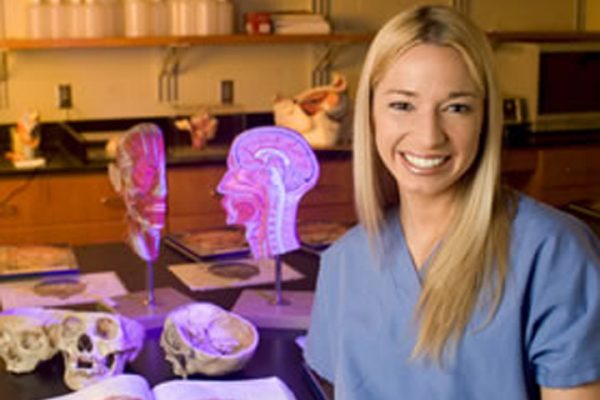
“Before sunrise [the patients] lined up, waiting for hours for our small clinic to open, but still they were appreciative.”
“My grandpa, dad, and uncles are all doctors so I’ve been around Medicine my whole life,” says Sarah Cooke, a second-year medical student. “I wasn’t pressured to become a doctor; in fact, at one time I was more interested in politics.”
As an undergraduate at Emory University, majoring in Political Science, Sarah took elective Science courses taught by “excellent teachers.” She says, “I found pre-med classes captivating, learning how the heart actually beats, and the science behind weight-loss drugs taught me why they were made illegal. After volunteering for missions overseas with my church, I saw the value that doctors bring to a community—they save lives on a daily basis. I realized then that Medicine was my calling.”
She chose to attend Florida State’s College of Medicine “because the curriculum combines scientific knowledge with compassion and caring—patient-centered care, with an emphasis on underserved populations, using the latest technology.”
Medical students are exposed early to patient contact. They begin with Anatomy, learning about human organs on cadavers. The Doctoring course, which uses standardized patients (SPs), volunteers who mimic patients with common diseases, teaches students how to interact with the living patient. Sarah says, “Under the guidance of faculty, we practice physical-taking skills on the SPs. Plus, we meet with doctors (known as ‘preceptors’) and their patients throughout the community.”
Sarah assisted a preceptor at his family practice office in rural Marianna, Florida, a community with only one surgeon. “I enjoyed the experience tremendously—removing moles, draining fluid from an abdomen, and learning about hospice home care for terminally ill patients.”
The summer following her first year, Sarah applied for and was accepted as a teaching assistant for the Anatomy class. “I have always enjoyed teaching; at Emory I tutored students for Organic Chemistry. Being close in age makes it easier to relate, and teaching others reinforces the important concepts about heart disease, cancer, and other end-of-life conditions.”
Sarah is not certain which area she will specialize in, but she does know she will spend her life “helping underserved populations with their medical needs” both in the States and abroad. “In the Dominican Republic, I watched medical professionals help literally hundreds of patients, those who would not otherwise receive care. Before sunrise they lined up, waiting for hours for our small clinic to open, but still they were appreciative.
“During the White Coat Ceremony, our initiation into the profession, Dr. Van Durme listed the many roles of a physician—detective, scientist, teacher, and servant—and said that serving others was a rough but worthy journey we would be on for the rest of our lives. I am looking forward to that journey.”




